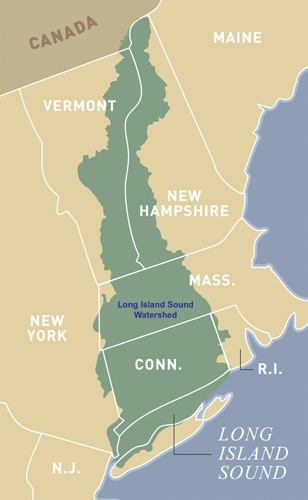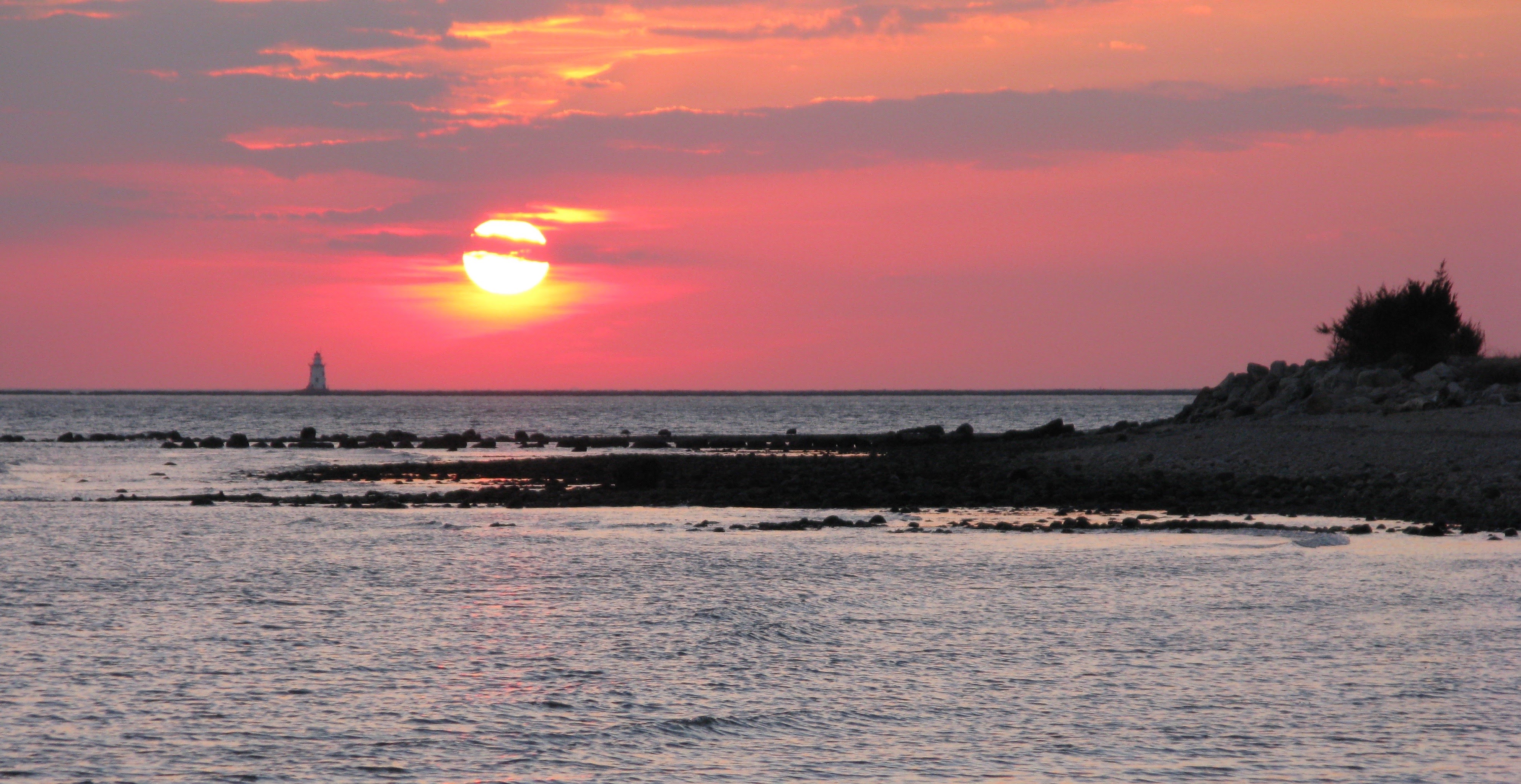The Long Island Sound Partnership (LIS Partnership) brings together agencies, commissions, universities, citizens, and environmental, industry, and user groups to improve the health of Long Island Sound.
NEIWPCC staff members who work at the LIS Partnership help implement a management plan for the Sound that includes research, monitoring, public education and outreach.
About the Sound

Long Island Sound is 1,300 square miles in size with over 600 miles of coastline. The Sound watershed, or drainage basin, covers more than 16,000 square miles and extends as far north as Québec. More than 9 million people live within the greater watershed. It provides crucial habitat for over 1,200 species of invertebrates, 170 species of fish, and dozens of migratory birds.
Comprehensive Conservation and Management Plan
The LIS Partnership Management Committee is a partnership of stakeholders representing citizen and environmental groups, businesses and industries, academic institutions, and local, state, and federal governments working to implement the 2025 Comprehensive Conservation and Management Plan (CCMP).
NEIWPCC and its LIS Partnership program staff assist with implementing all four goals of the Plan:
- Clean waters and healthy watersheds
- Thriving habitats and abundant wildlife
- Sustainable and resilient communities
- Informed and engaged public
Explore the CCMP as a StoryMap.
Stewardship Initiative
In 2006, Congress created the Long Island Sound Stewardship Initiative in order to recognize and protect areas around the Sound that hold ecological and recreational value. Learn about the 33 stewardship areas highlighted in the Stewardship Area Atlas.

The LIS Partnership is one of 28 National Estuary Programs funded by the EPA under Section 320 of the Clean Water Act. Additionally, in 2022 portions of the Long Island Sound estuary were designated by National Oceanic and Atmospheric Administration (NOAA) as a National Estuarine Research Reserve.
For more information about NEIWPCC’s involvement with the Long Island Sound, contact Alex Dumont, at adumont@neiwpcc.org.
